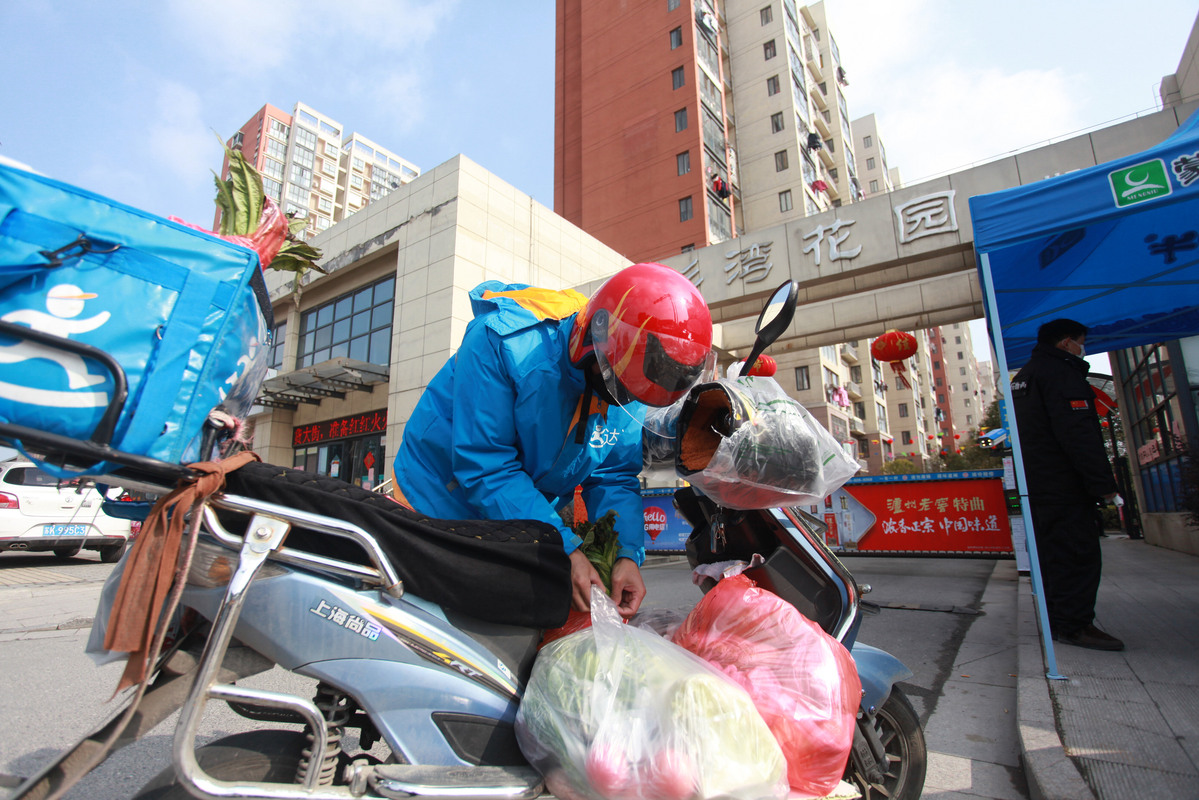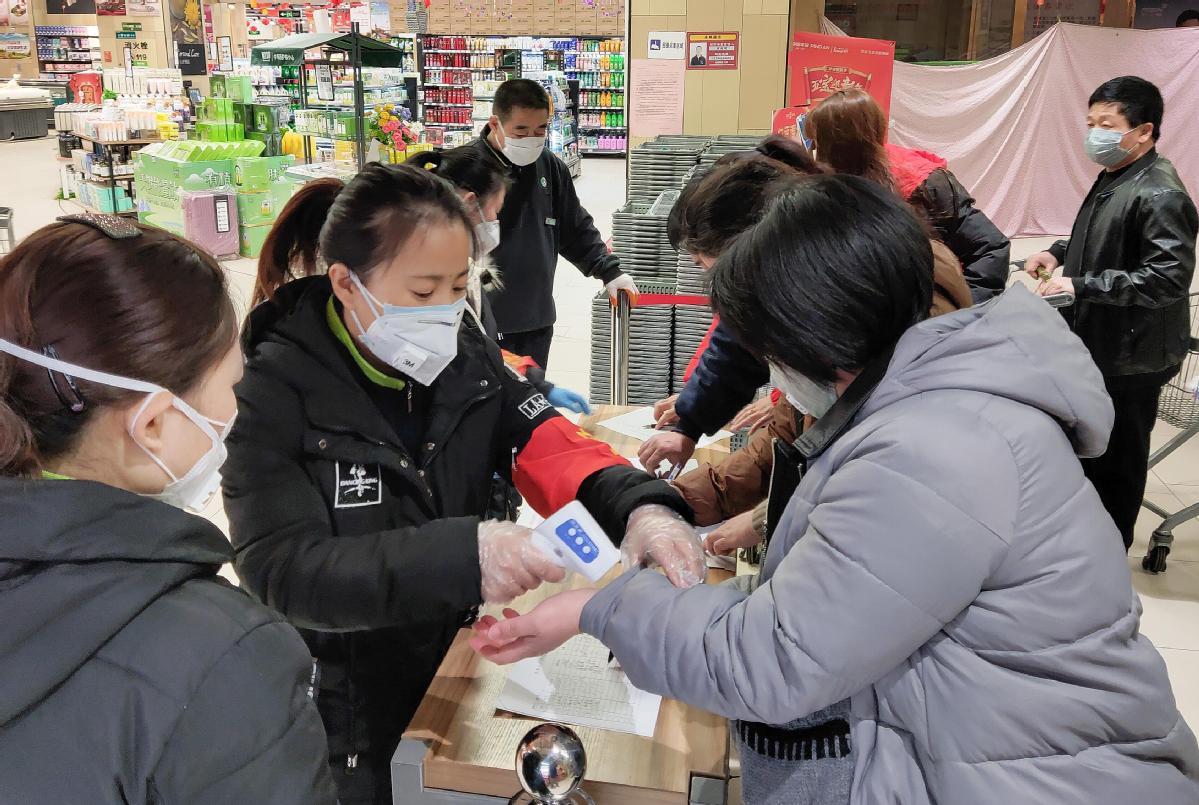
From the People's Daily App.
This is Story in the Story.
After being trapped at home for over one month due to the ongoing novel coronavirus outbreak, Zhang Xiaoyan, a 30-year-old from Nanjing, capital of eastern China's Jiangsu Province, found her cooking skills improved by leaps and bounds.
"I used to eat in the office and seldom cooked at home on weekdays. Even on weekends, I would prefer takeout food," Zhang said. "But during these days at home, I have spent much time studying cooking."
With a goal of learning at least one new dish every day, she downloaded three recipe sharing apps and followed several chefs on video-sharing app Douyin, also known as TikTok.
Just like Zhang, many Chinese people, who are staying indoors to avoid infection, are rolling up their sleeves and starting a new career in the kitchen. When time needs to be killed, cooking is not only for eating but also for fun.
Today’s Story in the Story looks at the growing demand for food e-commerce platforms brought on by more people cooking at home during the epidemic.

A deliveryman checks fresh food packages at the gate of a community in Yangzhou, Jiangsu province, on Feb 9. (Photo: China Daily)
A nationwide cook-off is raging on various social media. For Zhang and her friends, it has become a pleasure to watch each other's food videos posted on their WeChat Moments at mealtimes.
"It's a special way to say hello to each other as a face-to-face dinner is not possible now. It helps ease people's anxiety amid the epidemic," she said.
Burnt meat, broken dumplings, collapsed cakes -- Chinese netizens also share their failed kitchen laboratory results on social media and tease each other about it.
Cooking, fitness and study ranked among the top three pastimes during the virus outbreak, according to Xiaohongshu, an Instagram-like Chinese fashion and lifestyle sharing platform. Rice-cooker-made cakes, milk tea and cold noodles are the most popular recipes.
As fewer people go shopping at crowded brick-and-mortar stores, online fresh food retailers are lending a hand on their way to becoming home chefs.
According to a report released by online food delivery platform Meituan Dianping, sales of ingredients including vegetables, meat and seafood surged 200 percent month on month, and searches for baking materials rose 100 times recently, with sales of yeast up nearly 40 times.
Over the last few years, big investments have poured into the fresh food e-commerce sector. Now, about 4,000 companies are operating in China, with the shared idea to "offer convenience and guaranteed freshness."
As the money flowed in, many companies have prioritized customer acquisition over profitability by offering deep discounts or free small-ticket deliveries. This has resulted in exponential expansion of the market with an annual growth rate of over 40 percent, said Eric Hor, associate partner of global consultancy Prophet.

An employee checks customers' body temperature at the entrance of a Yonghui Superstores outlet in Tianjin on Jan 31. (Photo: China News Service)
But about 80 percent of companies are posting losses and only 1 percent are profitable, he said, adding the outbreak would accelerate consolidation and elimination of some firms in the industry.
"Since most people need to stay at home, they are 'forced' to try fresh e-tailing for the first time and many people would have formed a new habit of buying fresh food in the past few weeks. Customer acquisition suddenly becomes a non-issue," Hor said.
Wang Jun, a partner and chief financial officer of Missfresh, said they are taking steps to ensure supply and services.
The number of daily online orders of the Yonghui Superstores chain surpassed 300,000 on Feb 8. Consumers showed a preference for vegetables suitable for preservation and staple food items like rice and flour, said Yonghui Superstores President Li Guo.
Hema Fresh was reported to have hired idle workers at some offline catering companies to meet the sharp rise in food delivery demand.
Hor said successful fresh food e-commerce platforms will be those which build a strong ecosystem and partnership that can weather sudden changes in business conditions.
George Ren, senior partner and vice-president of Roland Berger China, said the outbreak is incubating an unprecedented occasion to cultivate the shift by customers in their purchase of daily necessities from offline to online channels.
"In the longer term, this spurs the advance of a whole supply chain system and a more sophisticated online merchandising excellence," he said.
(Produced by Nancy Yan Xu, Brian Lowe, Lance Crayon and Da Hang. Music by: bensound.com. Text from Xinhua and China Daily.)


